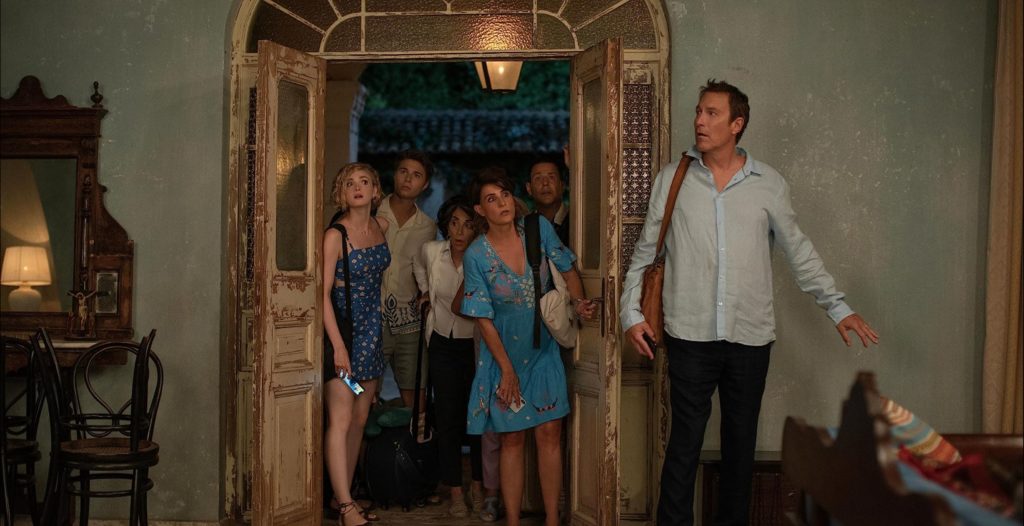Twenty years ago, a small independent film was released with nary a ripple. In its opening weekend it ranked 22nd in the box office, understandably stacked behind such cherished classics like “Final Destination 2” and “Kangaroo Jack.” This was quite alright, as its budget was just $6 million. This is a rounding error on most productions, or what Marvel might spend on napkins for their stars’ dogs.
But then the oddest thing happened: absolutely nothing. Most films are expected to make less after their opening weekend, but this little film kept sticking around, like a guest who can’t pick up the social cues that the party is over. By the end of 2003, “My Big Fat Greek Wedding” had grossed $360 million, which adjusted for inflation is roughly the GDP of Greece itself.
In an industry where box office predictions are calculated down to the reddest of cents, this was outside the realm of possibility. Accountants and critics alike struggled to understand just why this quaint romantic comedy about a Greek girl marrying a WASP boy was doing the numbers of a film set in Gotham. But the answer was just as obvious as the source; they could have simply asked our nation’s aunts, who proved its most dutiful customers.
For all the talk of the Great American Novel, there is but one real story in this country: someone from a quiet family marrying someone from a loud family. It was certainly repeated ad nauseam in my Croatian brood, as we made a habit of introducing inside-voice Protestants to a Catholic world of overlapping interrogation. One apocryphal story has my great-uncle walking into the kitchen and seeing his future father-in-law hacking away at a live octopus, which had wrapped around his arm for dear life. My uncle stayed for that dinner, which meant he had no excuse to miss any meal after.
Too often in the movies, relationships play out in a vacuum. Two young professionals (who never seem to work) fall in love in the big city without any witnesses, a tree falls in Brooklyn with no one to hear it. All lovers believe themselves to be the only two people in the world, a delicate fantasy shattered when time comes to negotiate wedding invites.
A person is more than their heritage, but then subtracting that heritage leaves nothing left but varying opinions on HBO programming. Loving a person means loving what made them, well, them. Love isn’t a world unto itself, but rather a collision of planets, and the rubble of families, ethnicities, and traditions strewn in the aftermath is called a marriage. “My Big Fat Greek Wedding” was one of the few films which understood that universality and was compensated accordingly.
Now some 20 years later, “My Big Fat Greek Wedding 3” continues the Big Fat saga. Toula (Nia Vardalos, who also wrote and directed the film) and her husband Ian (John Corbett, who did neither) journey to Greece with their daughter and other relatives for a family reunion. The original film was hardly subtle, but good at spotting the obvious details most of us learned to ignore. This latest installment is not only abroad but broader, with goats, scary old babas, europop dance numbers, even another Greek wedding hastily crammed in to satisfy the brand. I have no grounds to endorse it besides my own personal enjoyment, which is more due to character defect than its hidden charms.

But “MBFGW3” (as the kids these days call it) still wrestles with the American ethnic experience, in ways uncommon to cinema today. The first film was about Toula reconciling her need to get out from under her family’s thumb, yet loving that thumb in return. It was a re-embrace of tradition, yet on her terms. But as she returns to Greece, we sense that she’s looking for answers as much as a vacation.
With her father recently passed and her mother sliding into Alzheimer’s disease, she is now the head of the family that has defined her whole life. But growing old is just learning the same terrifying lesson over and over again: that no one is in charge and your elders were likely winging it alongside you.
The solution proposed is a retreat into the past, which is pregnant with meaning compared to a sterile present. Never mind that the old family village is empty, the ancestors having left for a reason. (I remember visiting the old church in my family’s similarly sparse ancestral village back in Croatia. As I leaned in to read a gravestone, a large black snake looped out from behind and sent me running back to America. If God is an author, then sometimes he is as understated as Dan Brown.)
The film is blindly in love with yesterday, including its own. The opening credits are filled with “family photos,” by which I mean literal stills from the previous movies. The cynical might call this film a cash grab, but I am a polite boy and will refer to it as a trip down memory lane. No one is immune to the pleasures of nostalgia, myself included. But history as a crutch is almost as dangerous a notion as history as shackles. As the first film put it, “don’t let the past dictate who you are; but let it be a part of who you will become.” Put another way, nostalgia is like a warm bath; sure it’s lovely, but you still can’t drink it.
What we wind up with is another “Greek myth,” where a trip to the homeland cures all the ills of atomized America. But then most Greek mythology ends with the gods turning you into a crab for sneezing in their general direction, so I’ll wait until the fourth wedding to declare a happy ending.

